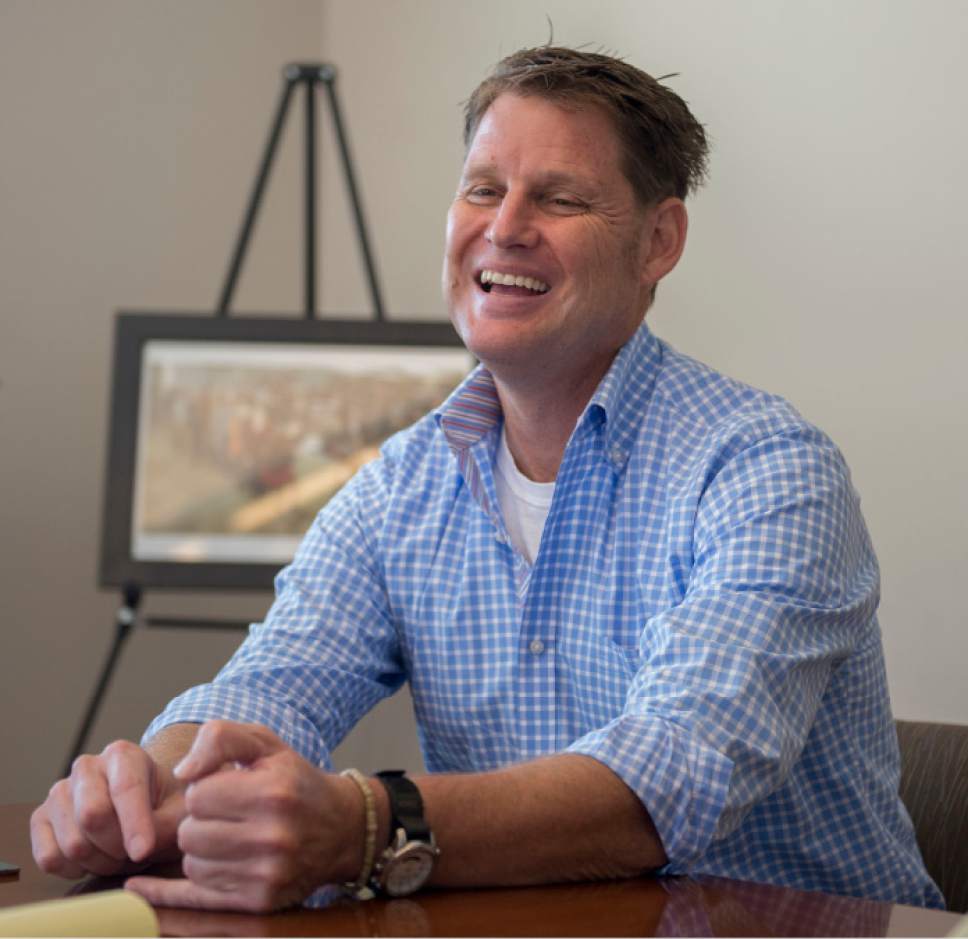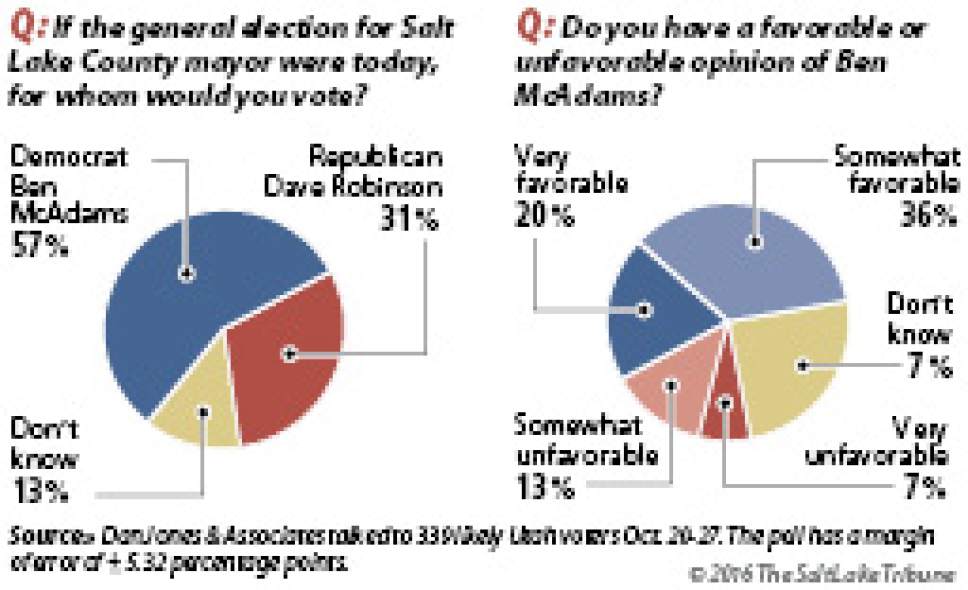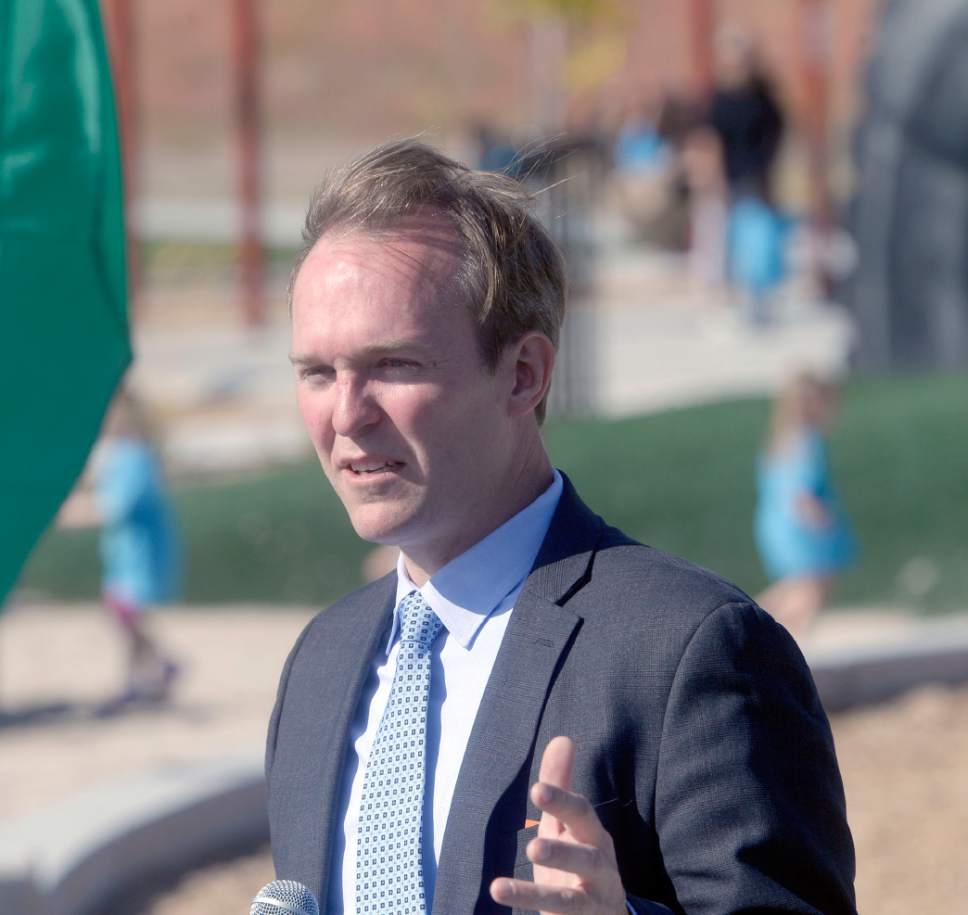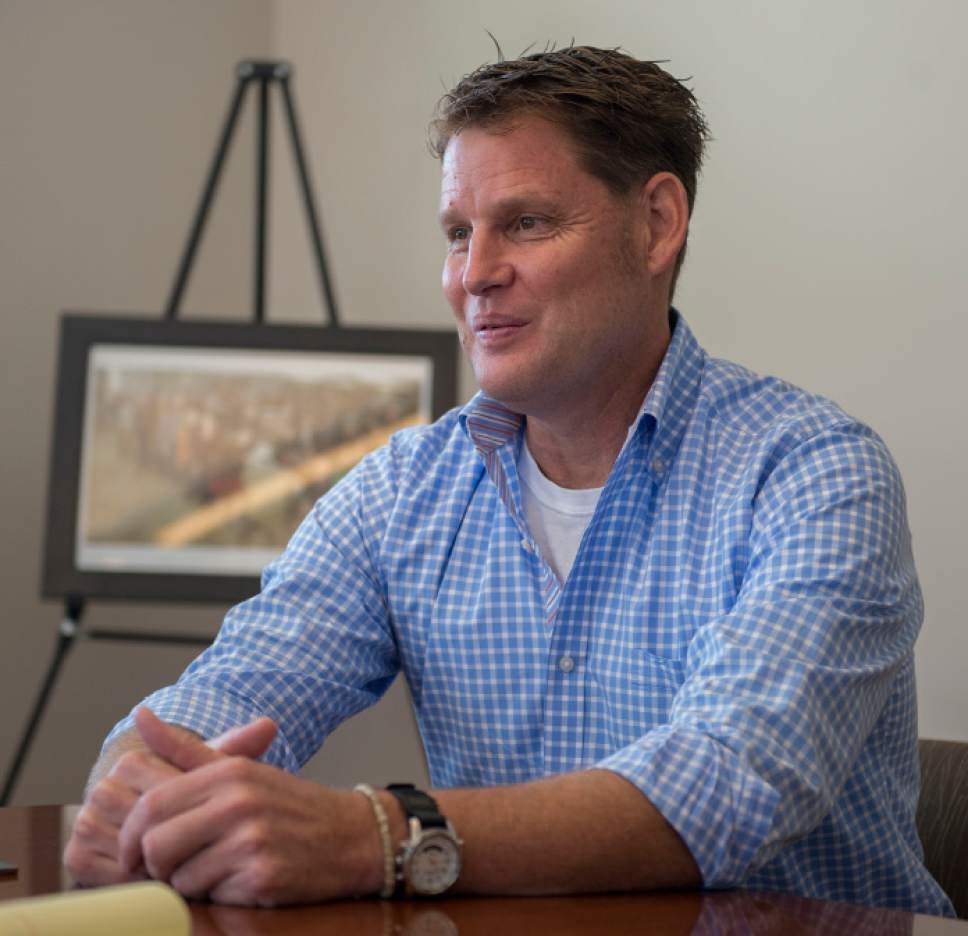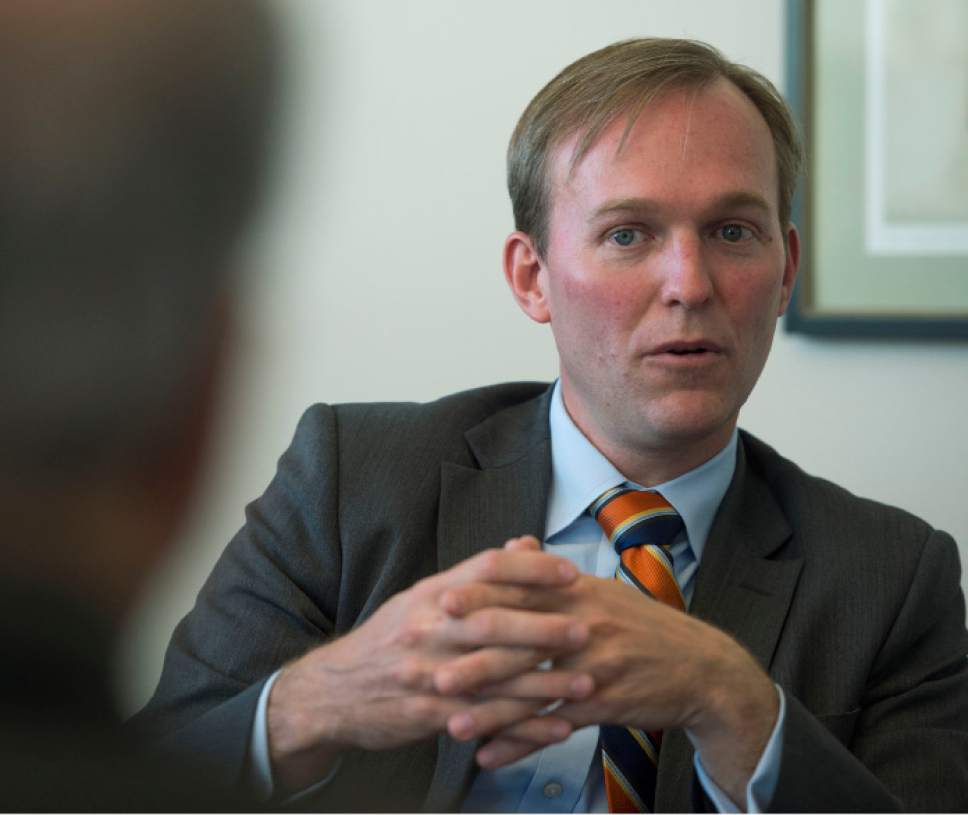This is an archived article that was published on sltrib.com in 2016, and information in the article may be outdated. It is provided only for personal research purposes and may not be reprinted.
Democrat Ben McAdams has a commanding lead over Republican challenger Dave Robinson in his bid for a second term as Salt Lake County mayor.
McAdams had the support of 57 percent of the county voters surveyed Oct. 20-27 for a Salt Lake Tribune-Hinckley Institute of Politics poll, compared to 31 percent for Robinson. About 13 percent of those contacted did not know or refused to answer.
"That's reflective of what we've expected," said the 41-year-old McAdams, who took over at the county four years ago after working in the Democratic administration of former Salt Lake City Mayor Ralph Becker and serving as a state senator.
"I've been campaigning hard, going door to door, delivering my message, and people seem to be responding favorably," he added.
Robinson, a 48-year-old business consultant best known for fighting Salt Lake City over water issues in the Wasatch Mountains, believes he is doing better than suggested by the poll, which interviewed 339 likely voters and has a 5.32 percent margin of error.
"Those numbers are not consistent with some of the flash polling I've seen," he said, adding "they certainly don't deflate me. We have stayed with our talking points through the campaign … that if the county sticks on the course with Mayor McAdams they'll experience higher taxes and higher fees."
While Robinson insists his message resonates with people the more they hear it, the Dan Jones & Associates' poll numbers indicate he hasn't made inroads among many groups.
McAdams is favored by men (57 percent to 35 percent), even more so by women (56 to 26). While the two candidates garner similar support among people with high school educations and among 18- to 24-year-olds, McAdams has sizably more backing among every other age group and educational background.
Democrats are lining up solidly behind McAdams (88 percent to 5 percent), who also appears poised to get 27 percent of the Republican vote (with Robinson getting 59 percent) and 64 percent of independents (to 19 percent for Robinson).
Robinson gets only single-digit support among people who consider themselves very or somewhat liberal, and was neck-and-neck with McAdams among somewhat conservative voters. Self-described moderates favored McAdams 64 percent to 22 percent.
The Democratic incumbent also was far more popular than Robinson among Catholics, Protestants, people with no religious affiliations and both somewhat active and non-practicing Mormons. "Very active" members of the LDS Church preferred Robinson 46 percent to 41 percent.
"I'm encouraged," said McAdams, whose Nov. 1 financial disclosure forms showed that he spent 10 times more on the campaign than Robinson — $532,888 to $52,695.
Through television ads, billboards and campaign appearances McAdams said "I've tried to bring a positive message about my vision for the future," citing the consolidation of 9-1-1 emergency dispatch services in the valley, passage of the Community Preservation Act that will create Millcreek City and five metro townships on Jan. 1, ongoing efforts to deal with homelessness and the criminal-justice system, and efforts to protect the central Wasatch Front through the Mountain Accord process.
"People are happy to see my accomplishments as mayor and my ability to work across party lines and to form coalitions," McAdams said. "They're tired of governments that do nothing but fight with each other.… I dive headlong into issues that have vexed government leaders for decades. I tear down walls and build bridges."
Robinson sees McAdams' performance much differently.
"He [McAdams] sets up committees and says we're collaborative, but he never gets things to the finish line. They spend a tremendous amount of taxpayer money and nothing comes out of it," Robinson said, taking particular aim at the Mountain Accord process, which has spent $7.5 million over the past few years to develop a "blueprint" for addressing the environmental, economic, recreation and transportation issues facing the central Wasatch Mountains.
Robinson has accused Mountain Accord of being a vehicle for McAdams' political supporters to land no-bid consulting contracts. Those allegations were rejected by McAdams, chairman of Mountain Accord's executive committee, and Laynee Jones, a consultant overseeing the planning process.
The Republican challenger said his canyon issues, largely focused against the power Salt Lake City exercises over land use due to its role protecting the watershed, are new to many people and hard to comprehend.
"Once they understand, they see it immediately," Robinson said.
McAdams dismissed Robinson's position on Mountain Accord as being one of "sour grapes" since many of the canyon-property owners he often represents were displeased that the accord's recommendations do not advance their chances of developing their land.
"I'm actually very proud of what we've accomplished with Mountain Accord," McAdams said.
"Dave is one who wants to develop land in the canyon. He didn't get his way [in Mountain Accord] so he's been critical. But just because you don't get your way doesn't mean the process wasn't good. The output is honorable. It's something I'm proud of."
While the mayoral election will be over on Tuesday, confrontations between McAdams and Robinson are likely to continue long after the ballots are tabulated.
By mid-month, the County Council is expected to transform the Mountain Accord into a more formal Central Wasatch Commission, which would hope to carry out the accord's recommendations — a process that will take years, even decades.


